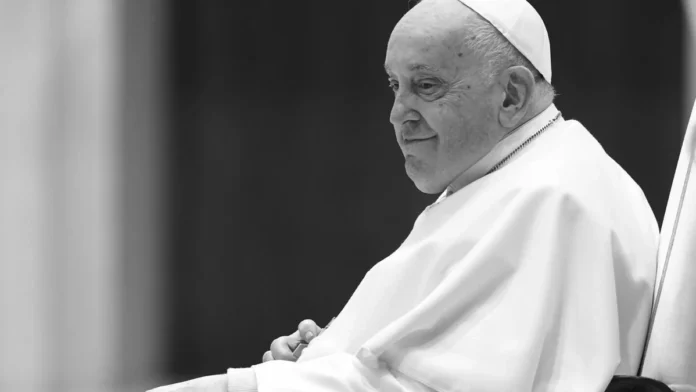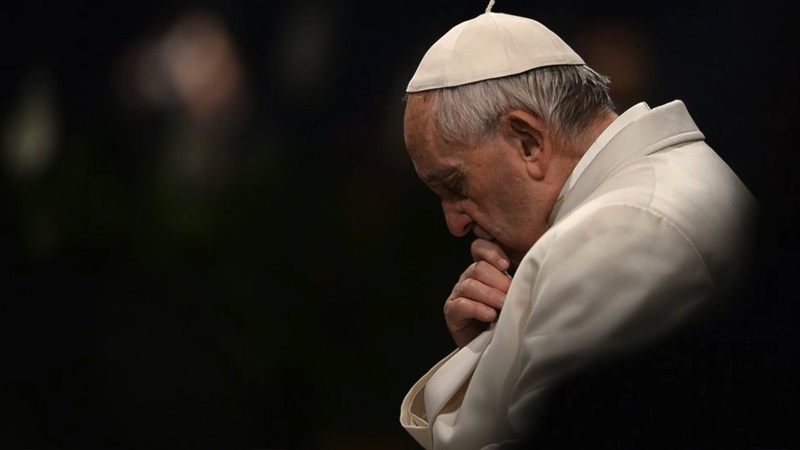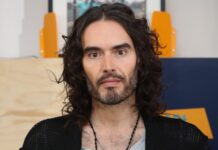
VATICAN CITY – Pope Francis, the 266th leader of the Roman Catholic Church and one of the most transformative religious figures in modern history, died early Monday morning at the age of 88. He passed away at 7:35 a.m. in his private quarters at Casa Santa Marta inside Vatican City, according to an official announcement by Cardinal Kevin Farrell, the camerlengo of the Holy Roman Church.
The Vatican confirmed that his death followed complications related to a prolonged respiratory illness.
Francis had battled multiple health setbacks in recent years, including colon surgery, bronchitis, and degenerative knee issues that confined him to a wheelchair during his final public appearances. Vatican sources reported that he remained conscious and in prayer until the final hours.
First Latin American Pontiff Ends 12-Year Papacy
Born Jorge Mario Bergoglio in Buenos Aires in 1936, Francis made history in 2013 when he became the first pope elected from the Americas. His ascension followed the resignation of Pope Benedict XVI, making him the first pontiff in nearly six centuries to succeed a living predecessor.
He was also the first Jesuit pope and the first non-European since Syrian-born Gregory III in the 8th century.
His papacy lasted just over twelve years, marked by a shift in tone and direction for the Catholic Church. He championed simplicity, openness, and mercy. He washed the feet of prisoners, kissed lepers, and spoke bluntly about the moral failures within the clergy.
He used his platform to spotlight social injustice, climate change, and economic inequality, calling poverty “a scandal the world must not tolerate.”
The Man Behind the White Cassock
| Category | Detail |
|---|---|
| Full Name | Jorge Mario Bergoglio |
| Born | December 17, 1936 in Buenos Aires |
| Ordained Priest | December 13, 1969 |
| Archbishop of BA | 1998 to 2013 |
| Created Cardinal | February 21, 2001 by Pope John Paul II |
| Elected Pope | March 13, 2013 |
| Papal Motto | Miserando atque eligendo |
| Languages Spoken | Spanish, Italian, German, Latin |
Internal Reforms and Doctrinal Shifts
Francis disrupted the internal machinery of the Vatican. He reduced the power of the Roman Curia, cut off financial abuses, and replaced problematic figures in key departments. He launched an unprecedented audit of the Vatican Bank and pushed for financial transparency.
Under his leadership, the Secretariat for the Economy became a major force, spearheaded by Cardinal George Pell.
On doctrinal matters, he encouraged a more pastoral tone without altering official teachings. He declared that LGBTQ persons must be welcomed with respect and said civil unions for same-sex couples could be legally supported. He urged compassion over judgment, famously saying, “Who am I to judge?” when asked about gay priests.
Relationship with the World
Francis traveled to more than 50 countries and reached out to both Catholics and non-Catholics with the same urgency. He visited refugee camps, war zones, and sites of religious persecution. He addressed both chambers of the United States Congress and became the first pope to speak before the European Parliament in Strasbourg.
He also played a role in geopolitics, facilitating the thaw in diplomatic relations between the United States and Cuba in 2014. In 2019, he signed the “Document on Human Fraternity” in Abu Dhabi with the Grand Imam of al-Azhar, a landmark moment in Christian-Muslim relations.
Pope Francis died on Easter Monday, April 21, 2025, at the age of 88 at his residence in the Vatican’s Casa Santa Marta. pic.twitter.com/jUIkbplVi2
— Vatican News (@VaticanNews) April 21, 2025
Reaction Across the Globe
Church bells tolled across continents within hours of the announcement. In Buenos Aires, hundreds gathered in Plaza de Mayo for candlelit vigils. Cathedrals in Europe opened for spontaneous prayer services. In Manila, Krakow, and Nairobi, parishioners held processions and sang hymns in his memory.
U.S. President Elizabeth Warren expressed “deep sorrow at the passing of a moral voice who dared to speak to the power structures of our age.” UN Secretary-General António Guterres described him as “a champion for the poor, the planet, and the powerless.”
For more news and insights on various topics, stay with us at HurfPost Brazil.

















